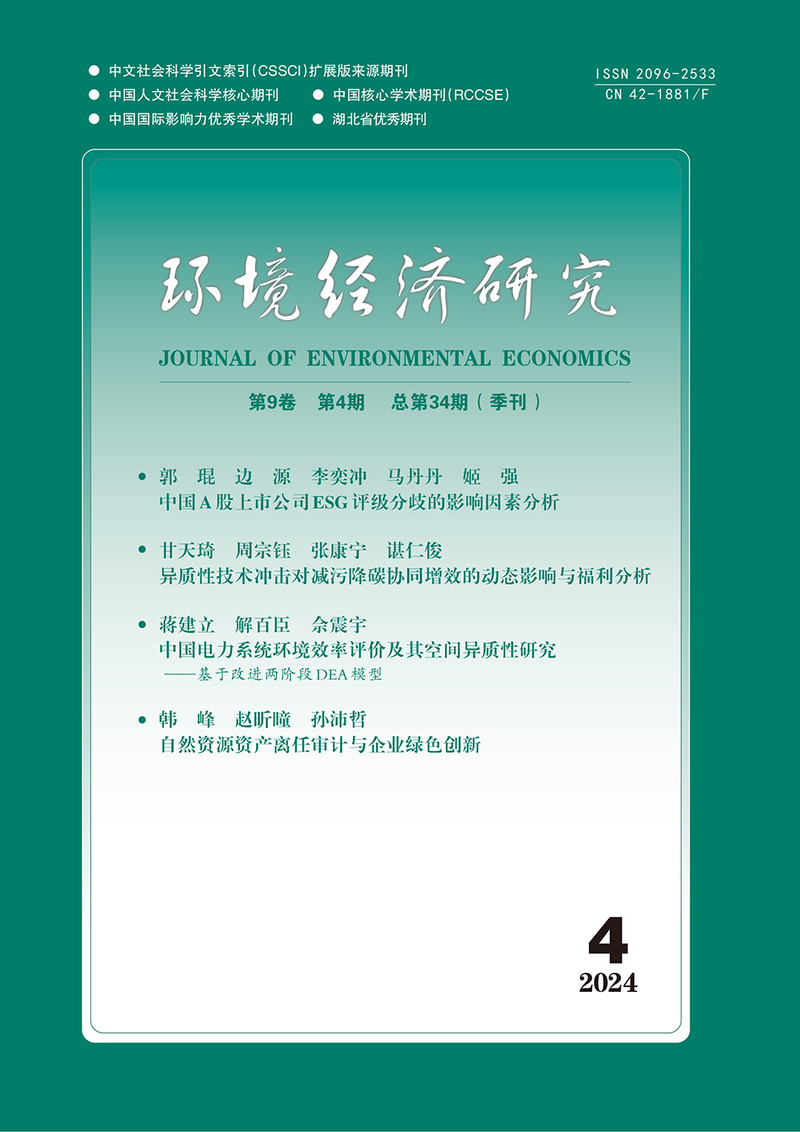The Responsibility Sharing of Carbon Emissions Embodied in Global Trade and It's Cross-border Compensation
Wang Wenzhi, Yang Shuang and Wang Yi
摘要:清晰地界定国家碳排放责任,进而设计科学合理的跨国碳排放补偿机制,以提升发展中国家的减排能力,是全球碳减排合作公平性的重要体现。本文基于WIOD的世界投入产出数据,构建了区域间双边碳转移测算模型,并以贸易利益为分配因子,实施碳排放责任共担,在该原则下进一步设计跨区碳排放补偿机制。研究结果表明:研究期间全球碳排放呈现先上升后下降的趋势;发达国家和地区的单位增加值出口隐含碳与单位增加值进口隐含碳的比值远远低于发展中国家和地区,说明发达国家和地区以相对较低的环境成本获取了较高的贸易利益,处于全球贸易隐含碳流动的优势地位;分行业碳排放分析表明部分行业的碳排放主要是由贸易引致的;以贸易利益为分配因子的碳排放责任共担更加合理和折衷,体现了“利益大,责任大”的分配思路。最后,本文建议以共担责任原则为基准实施跨区碳排放补偿,并分行业从生产侧或消费侧进行碳减排。
关键词:贸易隐含碳;联合国气候变化框架公约;跨区域补偿;全球价值链
Abstract: In order to enhance the emission reduction capacity of developing countries, it is critical to clearly define the national carbon emission responsibility, and then design a scientific and reasonable compensation mechanism for transnational carbon emissions. It's also an important manifestation of the fairness of global carbon emission reduction cooperation. Based on the world input-output data of WIOD, the paper constructs a calculation model of inter-regional bilateral carbon transfer. By using trade benefits as the allocation factor, we suggest to implement the responsibility sharing of carbon emissions between countries. Under the principle of responsibility sharing, we design a mechanism of cross-border carbon emission compensation. The results show that during the research period, the global carbon emissions was rising at first and then decreasing. The ratio of the carbon emissions embodied in unit value-added export to the carbon emissions embodied in unit value-added import was obviously lower in the developed countries. The developed countries had obtained higher trade benefits at relatively lower environmental costs. The analysis of carbon emissions in different industries shows that carbon emissions in some industries are mainly caused by trade. Shared responsibility of carbon emissions by using trade benefits as the allocation factor was a more appropriated and eclectic method and reflected the allocation principle of the more benefits, the more responsibility. Finally, we propose to implement cross-regional carbon emissions compensation based on the principle of shared responsibility, and to reduce carbon emissions from the production side or the consumption side of different industries.
Keywords: Carbon Emissions Embodied in Trade;UNFCCC;Cross-border Compensation;Global Value Chains
项目资助:浙江省哲学社会科学规划课题“浙江省碳排放空间转移效应的测量及减排政策的绩效模拟” (17NDJC210YB)、教育部人文社会科学研究青年基金项目“中国省域碳排放权的初始分配及其政策模拟:基于三种碳排放责任界定原则下的评估与比较”(17YJC790157)。
DOI:10.19511/j.cnki.jee.2019.03.003
